
The revision of the 2013 Land Law was officially launched 3 years ago, in August 2020, when the Prime Minister decided to establish a Steering Committee to review the implementation of the Land Law and develop a draft Land Law (amended), and at the same time assigned the Ministry of Natural Resources and Environment as the agency in charge of developing the Law Project.
The decisive milestone for the formation of the main viewpoints and policies of the draft Land Law (amended) was on June 16, 2022, when General Secretary Nguyen Phu Trong signed and issued Resolution No. 18-NQ/TW on "Continuing to innovate and perfect institutions and policies, improving the effectiveness and efficiency of land management and use, creating momentum to turn our country into a high-income developed country". The Resolution expects to innovate and perfect institutions on land management and use, opening up and creating momentum from land resources.
The new points of Resolution 18-NQ/TW, if institutionalized in the Law, will fundamentally change a number of current land policies. These include removing the land price framework, hoping to eliminate the situation of virtual prices and real prices; land allocation and leasing mainly through auctions and bidding; establishing a land use rights market; expanding the subjects and limits of agricultural land transfer; tighter management of multi-purpose land, etc.
" Land resources are managed, exploited and used to ensure the highest savings, sustainability and efficiency; meeting the requirements of promoting industrialization, modernization, equity and social stability; ensuring national defense and security; protecting the environment, adapting to climate change; creating momentum for our country to become a developed country with high income.
Resolution 18-NQ/TW
After the torch of Resolution 18-NQ/TW illuminated the viewpoint, the revision of the Land Law entered the stage of research, analysis, and determination of regulations that were both in line with the policy and feasible in practice. And to have those quality provisions, the National Assembly Standing Committee decided to organize a public consultation session.
Perhaps after the public consultation on the 2013 Constitution, the consultation on the amendment of the Land Law in early 2023 was the most extensive in recent years. In just 2 and a half months, from January 3, 2023 to March 15, 2023, the drafting agency - the Ministry of Natural Resources and Environment - received more than 12 million comments, demonstrating the special interest of the people in this extremely important law.
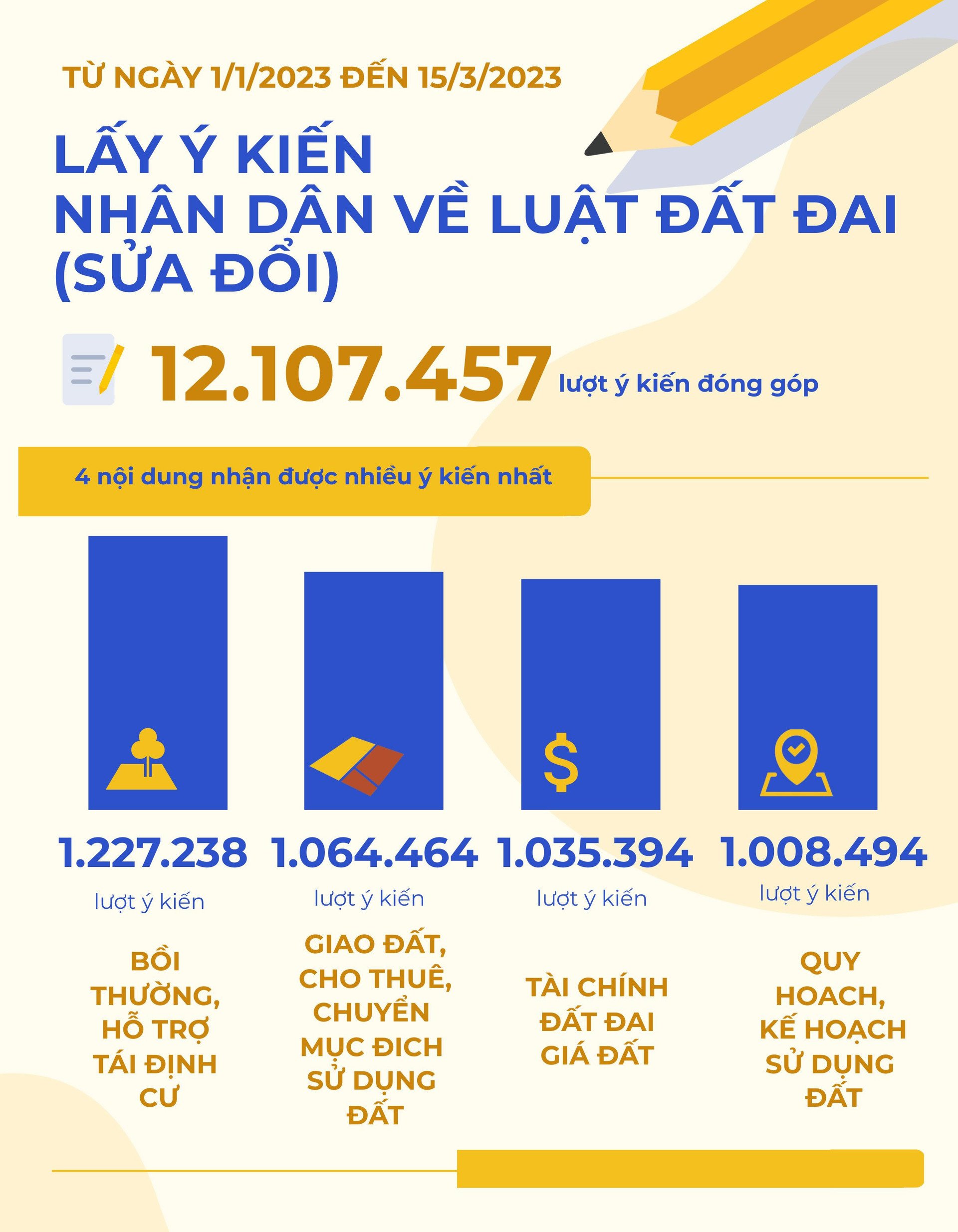
Of the more than 12.1 million comments, 89% came from socio-political organizations, of which the Central Committee of the Vietnam Fatherland Front received more than 8.36 million comments (accounting for 69%); the Central Committee of the Vietnam Women's Union received more than 2.3 million comments (accounting for 19.4%). Comments from the People's Committees of provinces and cities were more than 1.3 million (accounting for 10.8%)...
Thus, people from all localities, organizations, professions, intellectuals, businessmen or farmers are all consulted and have the right to express their opinions.
In this consultation period, we not only collect comments to build the draft law, but from here, people can "speak their hearts" about the land they are living on, from here "land" also has a voice with its users.
Realizing that this is a complex law with great impact on the country's socio-economy and on each citizen, the National Assembly has decided to discuss it in one more session compared to other Law projects. That is, instead of considering and passing it in two sessions, the Land Law (amended) will be discussed in three sessions (4th, 5th, 6th) and is expected to pass it in the 6th session (November 2023). In addition, in all three sessions, the discussion time in the hall will last a whole day, which is twice as long as the discussion time of other Law projects.

In the past 10 years, no Law project has received such special attention from the country's leaders as the Land Law (amended).
General Secretary Nguyen Phu Trong, in a meeting with voters in May 2022, emphasized that it is very difficult to amend the Land Law to promote the strengths of land. Therefore, it requires both strategic research and summaries, but also practical and daily; both theoretical and practical, ensuring people's lives and for the benefit of the nation and people.
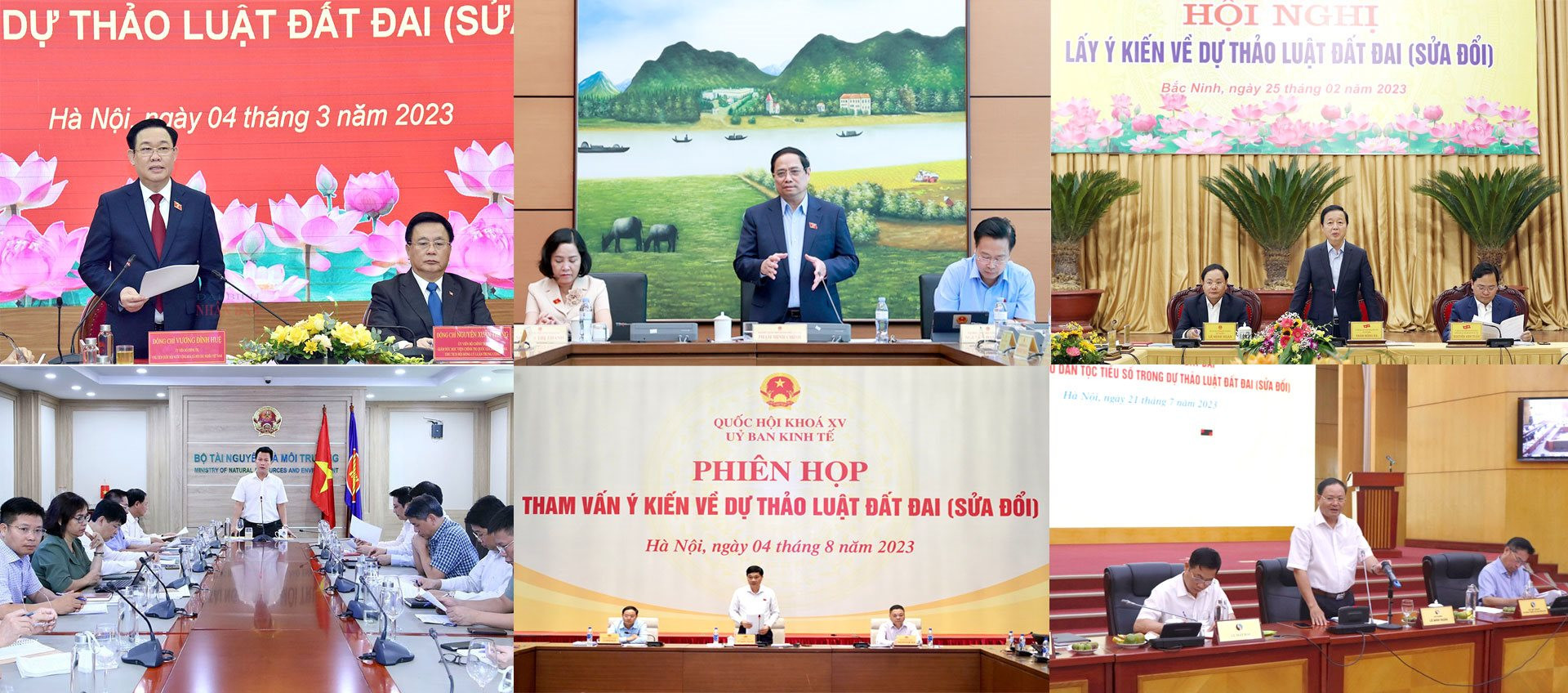
National Assembly Chairman Vuong Dinh Hue chaired conferences, seminars, and forums to discuss the draft Land Law at least five times and repeatedly commented on each provision in the draft Law.
The final result of the process of building and passing the Land Law is the most vivid example to evaluate the law-making capacity of the Government, the National Assembly, relevant organizations and agencies, to evaluate the capacity to institutionalize the Party's policies into the State's policies and laws; to evaluate the capacity to create development; the capacity to remove previous difficulties and obstacles and not to create new difficulties and obstacles; the capacity to demonstrate openness and transparency in law-making; and is also the most vivid example to demonstrate that we have well implemented the policy of the Central Committee and the Party in fighting negativity and embedding interests in law-making work.
National Assembly Chairman Vuong Dinh Hue
The head of the 15th National Assembly affirmed that the development and completion of the Land Law project (amended) is a key task of legal work during the 15th National Assembly term.
At many forums, Prime Minister Pham Minh Chinh also shared his thoughts on land management and expectations for legal reform to make land a real resource for national development.
Deputy Prime Minister Tran Hong Ha has been closely following the process of amending the Land Law since he was the Minister of Natural Resources and Environment. He always requires listening and generalizing from reality to accurately reflect the voices, thoughts and aspirations of people in each region with different cultural characteristics, economic and natural conditions.
Minister of Natural Resources and Environment Dang Quoc Khanh took on the role of Commander of the Natural Resources and Environment sector from May 2023. Since then, he has been working closely with the Drafting Committee, Editorial Team and directing close coordination with the reviewing agency to complete the draft Land Law (amended) in the best quality.
As a National Assembly delegate in the mountainous province of Ha Giang, Minister of Natural Resources and Environment Dang Quoc Khanh is particularly interested in land policies for ethnic minorities, in addition to hot land management issues such as land recovery, resettlement support, land valuation, etc.
Since the 5th session of the 15th National Assembly, the agency in charge of the review - the National Assembly's Economic Committee - has been the agency in charge of receiving, explaining and perfecting the Draft Law. In August 2023 alone, the National Assembly agencies held 7 working sessions, workshops and in-depth discussions on the draft Land Law (amended). The conference of full-time National Assembly deputies held on August 30 received many diverse opinions. In two consecutive sessions (sessions 25 and 26), the National Assembly Standing Committee also discussed different contents of the draft Law. Each clause, each concept, each content was carefully examined and compared with reality to find the most feasible and suitable solution.
Up to this point, the draft Land Law (amended) has been carefully prepared, awaiting the contributions of elected representatives in the discussion session tomorrow, November 3. Hopefully, major issues regarding land policies and laws will gradually become clear.
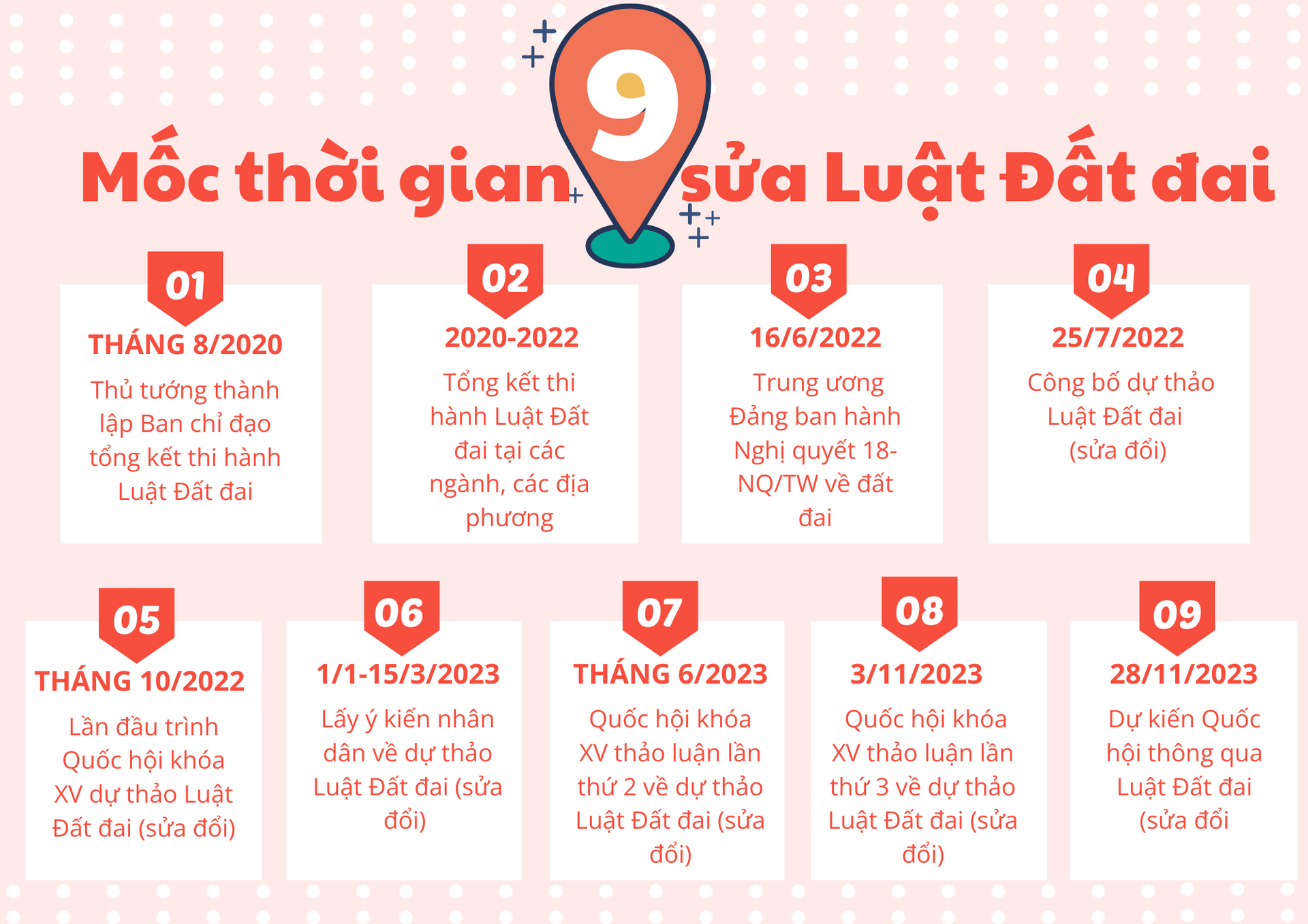

After two sessions of the National Assembly discussing and collecting public opinions nationwide, along with the participation and comments of many experts, the draft Land Law (amended) has been received, revised and perfected many times.
Up to now, we can review 9 new points of the draft Law submitted to the National Assembly at this 6th session.
Firstly, ensure the general consistency in the legal system between the Land Law and related laws . The latest draft stipulates that related contents of other laws will be included in the transitional provisions for handling. In addition, principles for land-related regulations of other laws will be referenced.
The amendment of the Land Law must unify the orientation of the viewpoints of Resolution 18/NQ-TW, and at the same time must resolve issues of socio-economic development orientation, ensure national defense and security; ensure the country continues to develop, improve people's lives; and resolve pressing, inadequate, and outstanding issues in the land sector.
Minister of Natural Resources and Environment Dang Quoc Khanh
Second, regarding the issue of land for ethnic minorities , this draft law adds many contents, such as: strictly prohibiting the transaction of residential land and production land allocated or leased by the State under the land support policy for ethnic minorities; district-level land use planning and plans must determine the targets of land types and land allocation projects to ensure land policies for ethnic minorities; stipulating one more case where the State reclaims land to implement land policies for ethnic minorities. In addition, it is determined that a part of ineffectively used agricultural and forestry land will be reclaimed to resolve land for ethnic minorities.
In addition, the Draft also provides for preferential policies to resolve land issues for officers, soldiers, armed forces, teachers, and medical staff working in border and island areas.
Third, regarding land use planning and plans , the Draft to review and detail the contents of land use planning and plans at all levels has also been revised in the direction of simplifying and integrating the contents of provincial land use plans, national defense land use plans, and security land use plans in the phased land use planning at the same level to reduce the procedures for preparation, submission, and approval, ensuring simultaneous effectiveness. The Draft controls the mandatory time for project implementation when it has been determined in the district-level land use plan to ensure the land use rights of land users in the areas included in the land use plan.
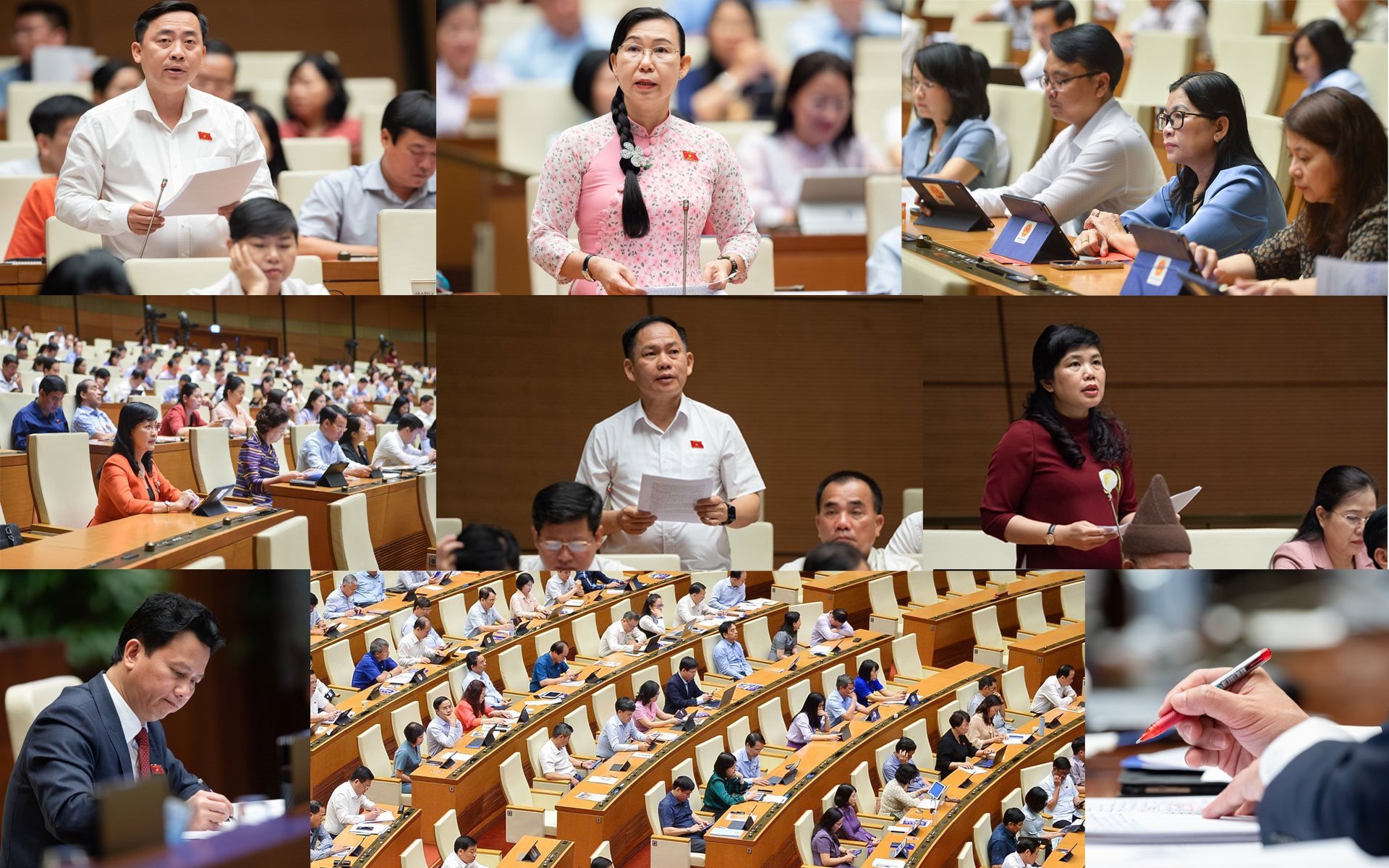
Fourthly, regarding land finance and land prices, this Draft continues to have more specific, clear and coherent regulations on removing the land price framework, regulating the land price table to be issued from January 1, 2026 and being amended, supplemented and adjusted annually in accordance with market principles, reviewing policies on land use fees and land rents to ensure transparency; perfecting policies on exemption and reduction of land use fees and land rents suitable for fields, localities and subjects...
In particular, the cases where the price list is applied to determine land prices are expanded and the cases where specific land prices must be determined are reduced. In determining specific land prices, there are regulations on criteria and targets and the provincial People's Committee is assigned to provide clearer regulations. That helps those doing the valuation work to easily implement, avoid shirking responsibility, and fear of responsibility in performing official duties.
Fifth, regarding land recovery, compared to the previous draft, this draft has continued to specify cases where it is really necessary to recover land for socio-economic development in the national interest, ensuring compliance with the provisions of the Constitution. The draft adds a "sweeping" provision allowing amendments and supplements to cases of land recovery of the Land Law according to simplified procedures to resolve urgent cases arising in practice that have not been regulated in the Law after the Land Law was promulgated while still ensuring the principles of the Constitution.

Sixth, regarding land allocation, land lease, and land use purpose conversion, the Draft continues to implement the mechanism of self-negotiation between people and enterprises in transferring land use rights to implement urban and commercial housing projects to ensure the legitimate rights of those who have land use rights.
The draft clearly defines the cases of auction and bidding, and specifies the criteria and conditions for conducting auctions and bidding. Accordingly, conducting auctions of land use rights for land funds that have been compensated, supported, resettled or land under the management and use of the State helps land allocation and land lease to be carried out transparently, increasing revenue for the State budget to serve the common interests of the country and people. Conducting bidding to select investors to implement projects using land for projects that are key, widespread, and motivating, in line with the socio-economic development plan that has been determined by the local government and Party committee as the key and widespread nature of the project for the local socio-economic development plan in each period.
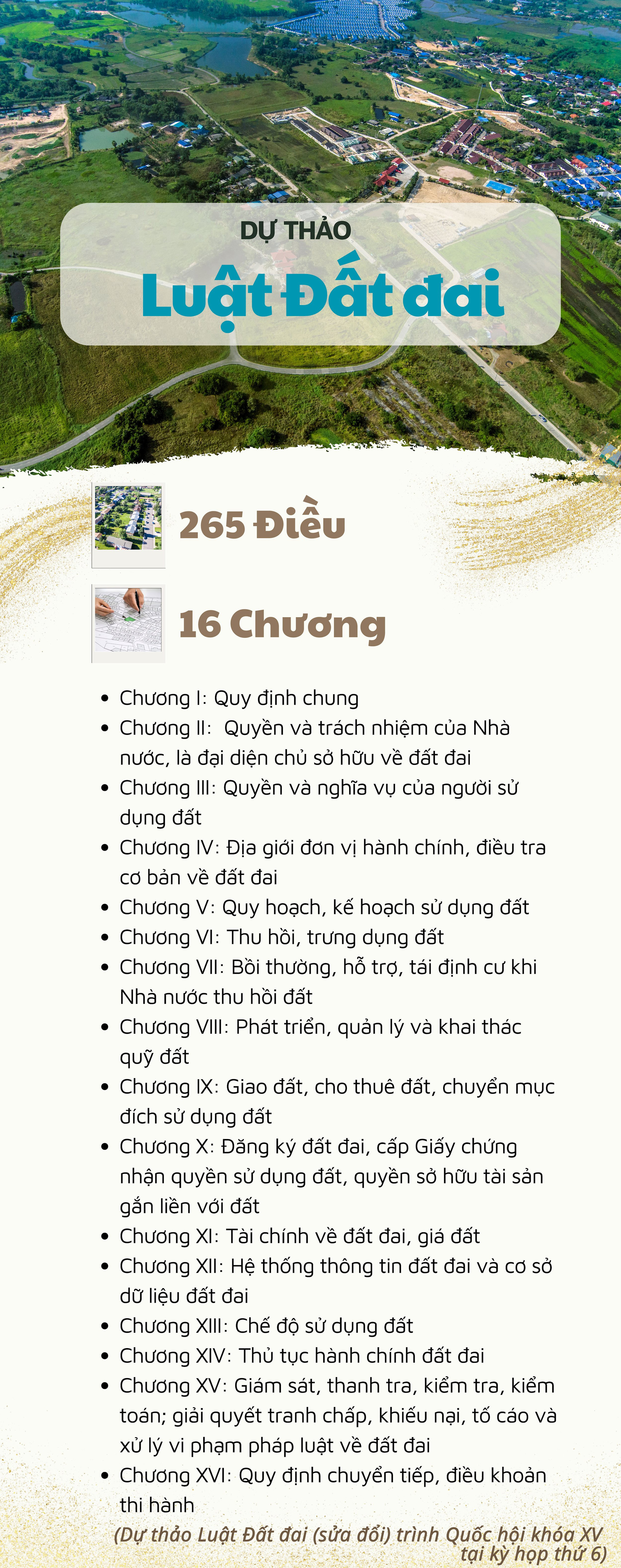
Seventhly, regarding compensation, support and resettlement, policies on land prices and policies on compensation, support and resettlement payments have been adjusted and completed relatively synchronously to ensure market suitability and protect the legitimate rights of land users.
The draft reviews and completes the procedures for implementing compensation, support, resettlement arrangements and the responsibilities of authorities at all levels and agencies at each step of the work. Compensation, support and resettlement must be one step ahead, ensuring publicity, transparency, and harmonizing the interests of the State, people whose land is recovered and investors, so that people whose land is recovered have a place to live, ensuring an equal or better life, in accordance with the cultural traditions and customs of the community where the land is recovered.
Eighth, regarding the multi-purpose land use regime, one of the requirements of the multi-purpose land use is that the main land use purpose is not changed. For some types of land when used in combination, a land use plan must be prepared and submitted to the competent state agency for approval (land for construction of public works, agricultural land combined with trade and services; land with water surface combined with trade and services, etc.).
Ninthly, regarding administrative reform, the Draft Law has amended administrative procedures on land allocation, land lease, permission to change land use purposes, land registration, issuance of land use right certificates, provision of land information... in the direction of reforming to reduce administrative procedures, reduce time, human resources, related paperwork, and clarify the responsibilities of each agency and unit in the process of handling administrative procedures to meet the requirements of people and businesses in the process of handling administrative procedures. The provisions in the Draft Law will be an important basis for implementing transparency and simplification of administrative procedures, creating a premise for modernizing the provision of public services in the land sector for people and businesses, contributing to promoting the overall socio-economic development of the whole country.

Land law policies in any period are of special interest to the people, business community, managers, etc., because land is the living space, the means of production of each person, each family and a great development resource of the country. In this revision of the Land Law, the interest and expectation are even greater. More than 12 million comments on the Law revision show that people are looking forward to a comprehensive revision of the Land Law.
The Land Law (amended) expected to be passed at the end of November will resolve many practical problems and shortcomings, contributing to transparency and concretization of regulations, especially regulations on planning, land use plans, land allocation, land lease, land use rights auction, bidding for projects using land, land finance, land prices, compensation, support, resettlement, etc.
These are important factors to ensure the harmony of interests of the State, investors and people; to unleash land resources for national development, ensure national defense and security, protect the environment and respond to climate change; to create maximum convenience for individuals and organizations when exercising their rights and protecting their interests when the Land Law (amended) comes into effect.
I hope that in this 6th session, the National Assembly will pass the draft Land Law (amended), but there must be solutions to remove practical obstacles. The Land Law, amended in a synchronous manner with related laws, will become an important solution to unlock resources and promote socio-economic development in the coming time.
National Assembly Delegate Vu Tien Loc
The report synthesizing the opinions and recommendations of voters and people sent to the 6th session of the 15th National Assembly also said that voters and people were excited to participate in widely contributing opinions to the draft Land Law (amended). The Presidium of the Central Committee of the Vietnam Fatherland Front recommended that the National Assembly and the Government closely follow the Resolution of the Central Executive Committee of the Party, thoroughly discuss the contents with different opinions in the draft Land Law (amended), study and fully absorb the opinions of voters and people, especially the contents directly related to the rights and legitimate interests of people when the State reclaims land.
It is noted that across the country, from local leaders, sectors to businesses and people, everyone is waiting for the Land Law (amended) to be passed.
Mr. Tran Huu The - Chairman of Phu Yen Provincial People's Committee said that the 2013 Land Law still has some limitations and shortcomings. In particular, the most mentioned issue is that the Land Law and other related legal documents have many contradictions, overlaps, and are not consistent and unified. The result is unclear management responsibilities, causing difficulties in organizing implementation for localities in general and in Phu Yen province in particular. Phu Yen recommends that there should be a mechanism to amend, adjust, and supplement land policies, laws, other related laws, and synchronized administrative procedures, and handle some arising and inadequacies in practice.
Mr. Nguyen Duy Thanh - Chairman of the Board of Directors and General Director of Global Home Management Joint Stock Company said that the new Land Law soon passed by the National Assembly will resolve outstanding issues to make it easier for businesses to implement projects and speed up the process of granting "red books" and "pink books" for real estate projects that have been "stuck" for quite a long time without being granted to people.
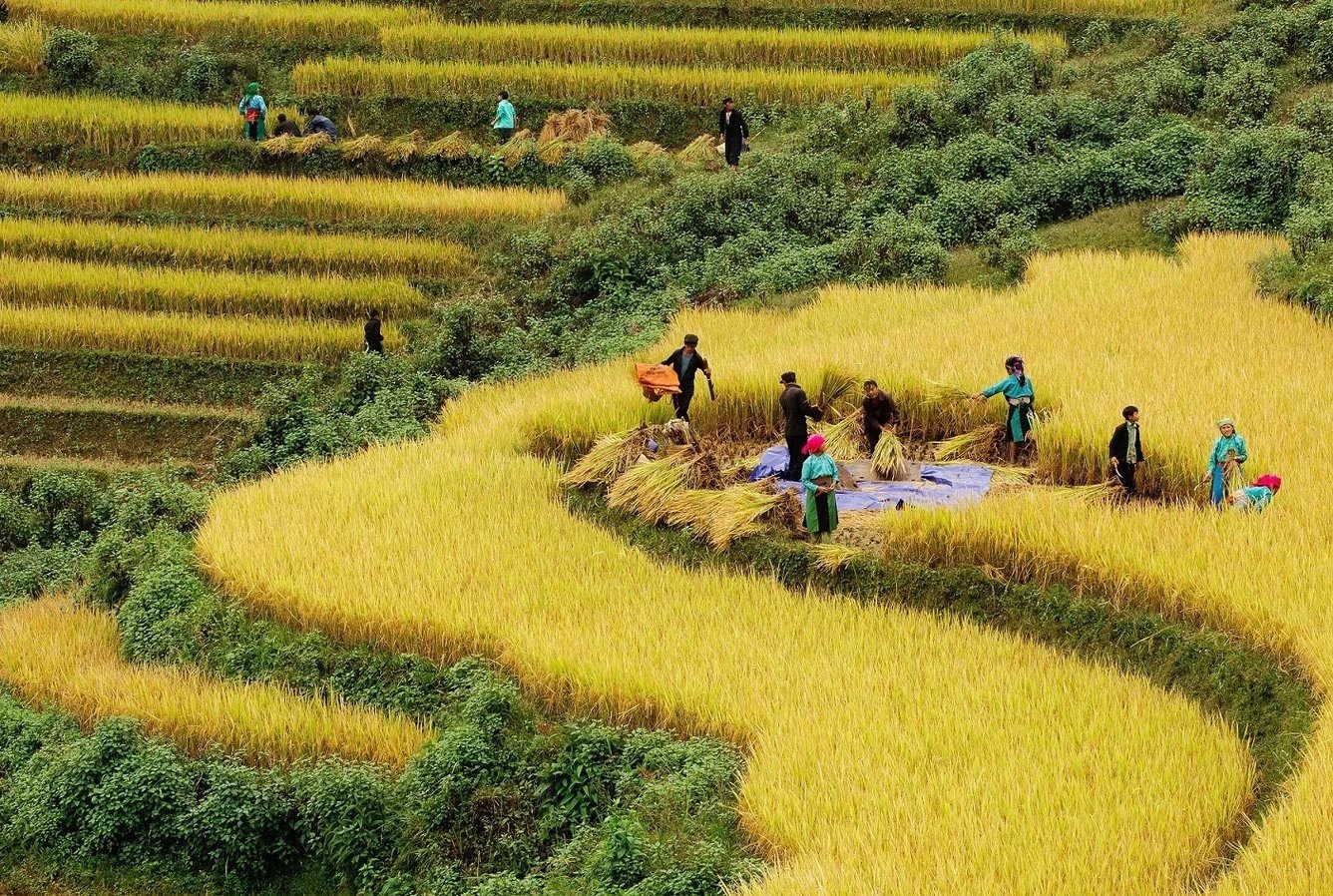
Mr. Tan Dieu Quang (Dao ethnic group), Chi Sang village, Sin Suoi Ho commune, Phong Tho district (Lai Chau), said: Voters and people are waiting for the Land Law (amended) to be passed so that the Land Law can soon be enacted and put into practice. I dare not discuss the big issues here, but specifically about land, land policy will affect every household, every person in society, including ethnic minorities like us.
People across the country are eagerly waiting for the law to be passed. Of course, it must be a law with mature and clear regulations, ensuring maximum publicity, transparency and fairness at the present time.

Source




![[Photo] Overcoming all difficulties, speeding up construction progress of Hoa Binh Hydropower Plant Expansion Project](https://vstatic.vietnam.vn/vietnam/resource/IMAGE/2025/4/12/bff04b551e98484c84d74c8faa3526e0)
![[Photo] Closing of the 11th Conference of the 13th Central Committee of the Communist Party of Vietnam](https://vstatic.vietnam.vn/vietnam/resource/IMAGE/2025/4/12/114b57fe6e9b4814a5ddfacf6dfe5b7f)


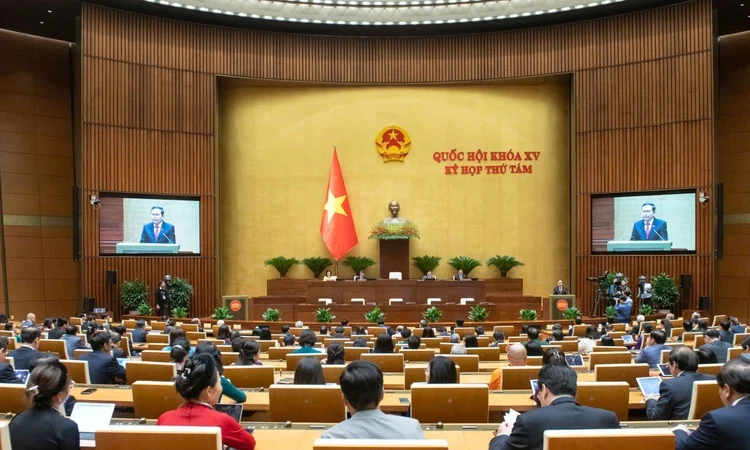

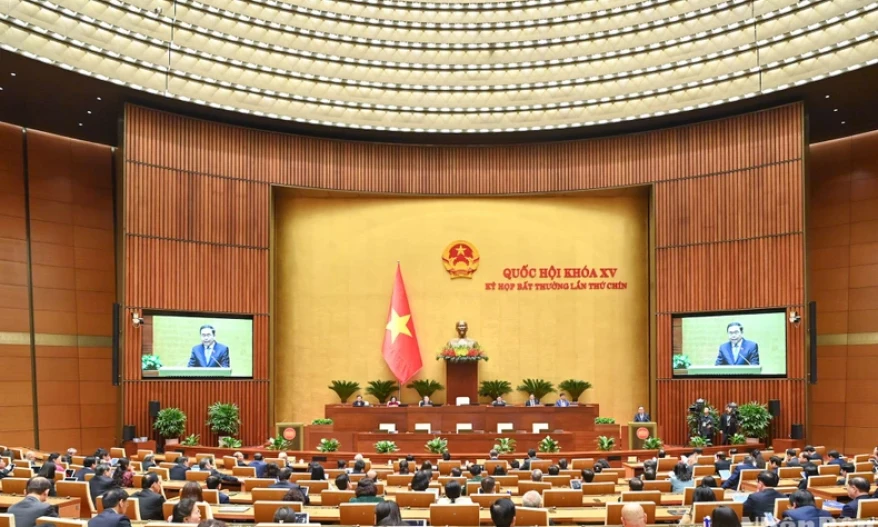
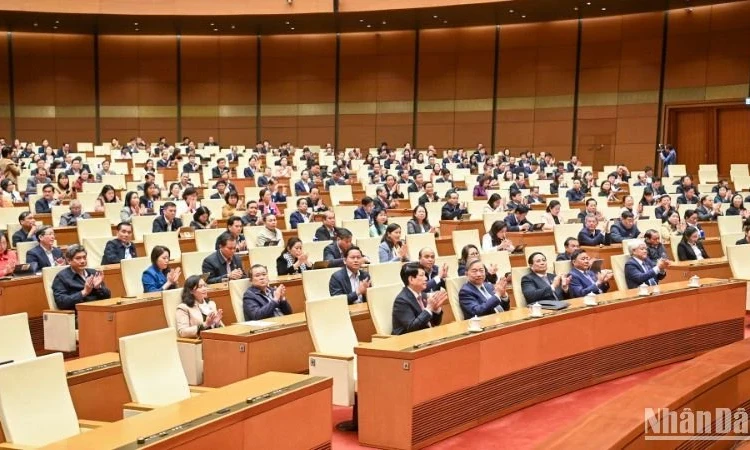
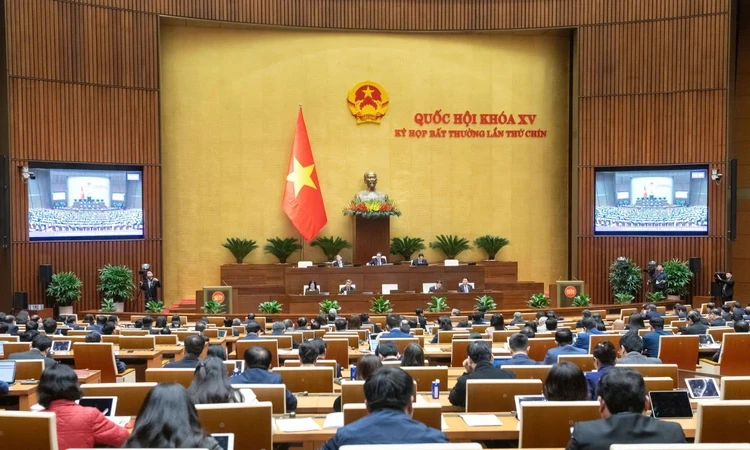
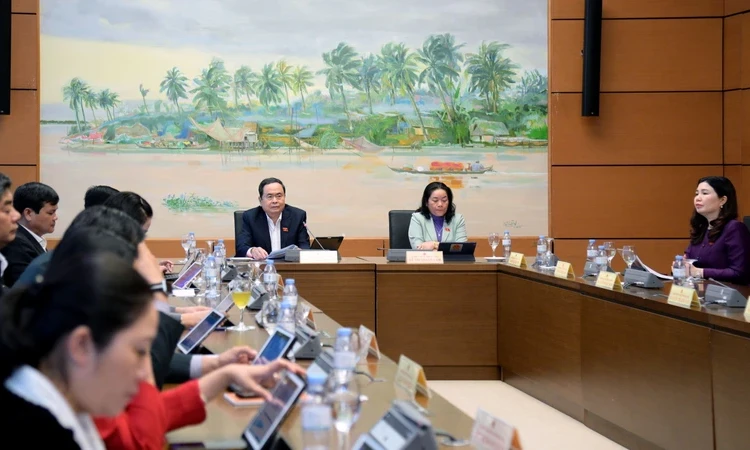
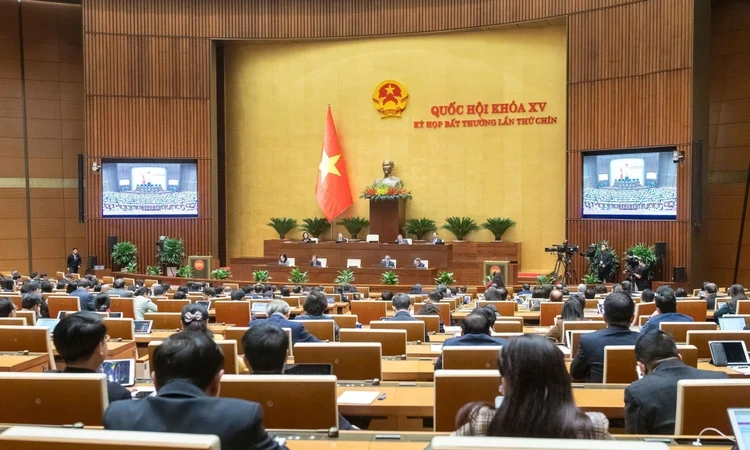



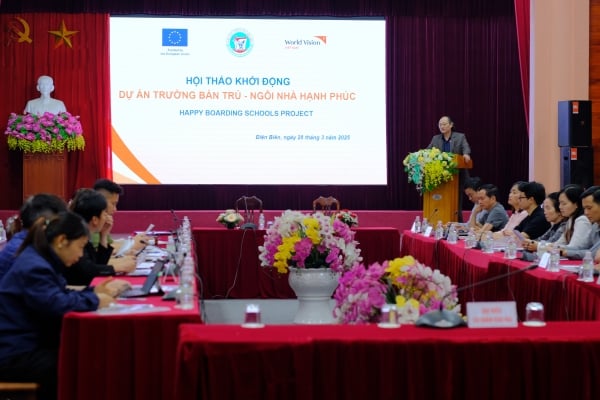
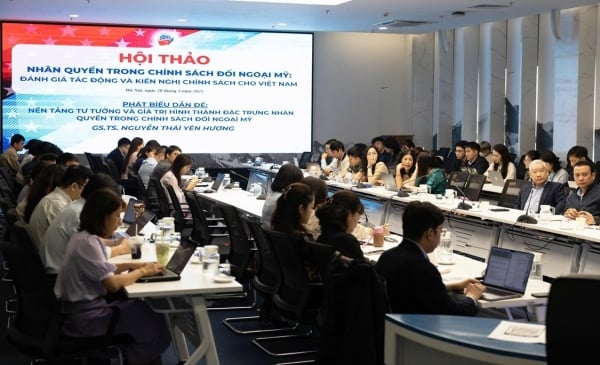










































































Comment (0)